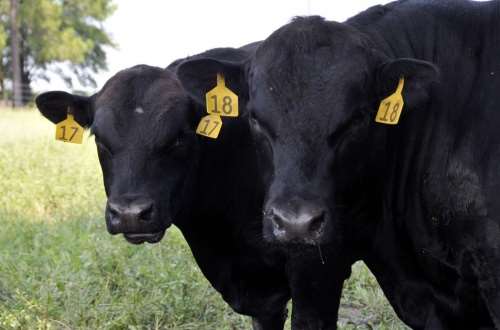By Denise Attaway

Genetic markers, genomics and impacts of fescue grasses on cattle fetuses are some of the topics appearing on the agenda for this year’s field day at Clemson University’s Simpson Research and Education Center (REC).
The fourth annual Simpson Research and Education Field Day is scheduled Aug. 20 at the Simpson REC, located at 2013 Lebanon Road in Pendleton. John Andrae, director of the Simpson REC, said this year’s field day agenda reflects the latest research concerning beef, small ruminants and forage production.
“This year’s program is filled with vital information for all livestock producers,” Andrae said. “We will have researchers discussing topics related to hay operations, genetic markers and beef cattle selection, and more.”
The field day gets under way with registration at 8:30 a.m. The program begins with a welcome at 9 a.m. All attendees will board buses to travel to field areas for the morning sessions, beginning with the Joint Agronomy and Livestock session. It will include a discussion on the development of a real-time yield monitor for hay operations. Following the first session, attendees will choose between the Beef, Small Ruminant and Forage Production session and the Agronomic Crops session.
The Beef, Small Ruminant and Forage Production session will include discussions about genetic markers and beef cattle selection. Attendees also will learn how tall fescue, a cool season perennial grass used to feed livestock, impacts cattle fetuses. Also included in this session will be information about grazing and cattle management during drought conditions.
The Agronomic Crops session will include discussions on sorghum germplasm and genomics for feedstuffs and feedstock, the Clemson Corn Genomics Program, insect issues in soybeans and production practices and dryland agronomic variety trials.
The lunch program will include speakers who will talk about precision agriculture options and current drought programs for livestock and row crop producers.
Two optional afternoon tours will be offered. The Agronomic Tour will include a trip to the Clemson Bottoms, where attendees will learn about crop improvement studies being conducted for South Carolina. Attendees also can choose the Livestock Tour, where they will learn about the Clemson Bull Test.
Source:clemson.edu